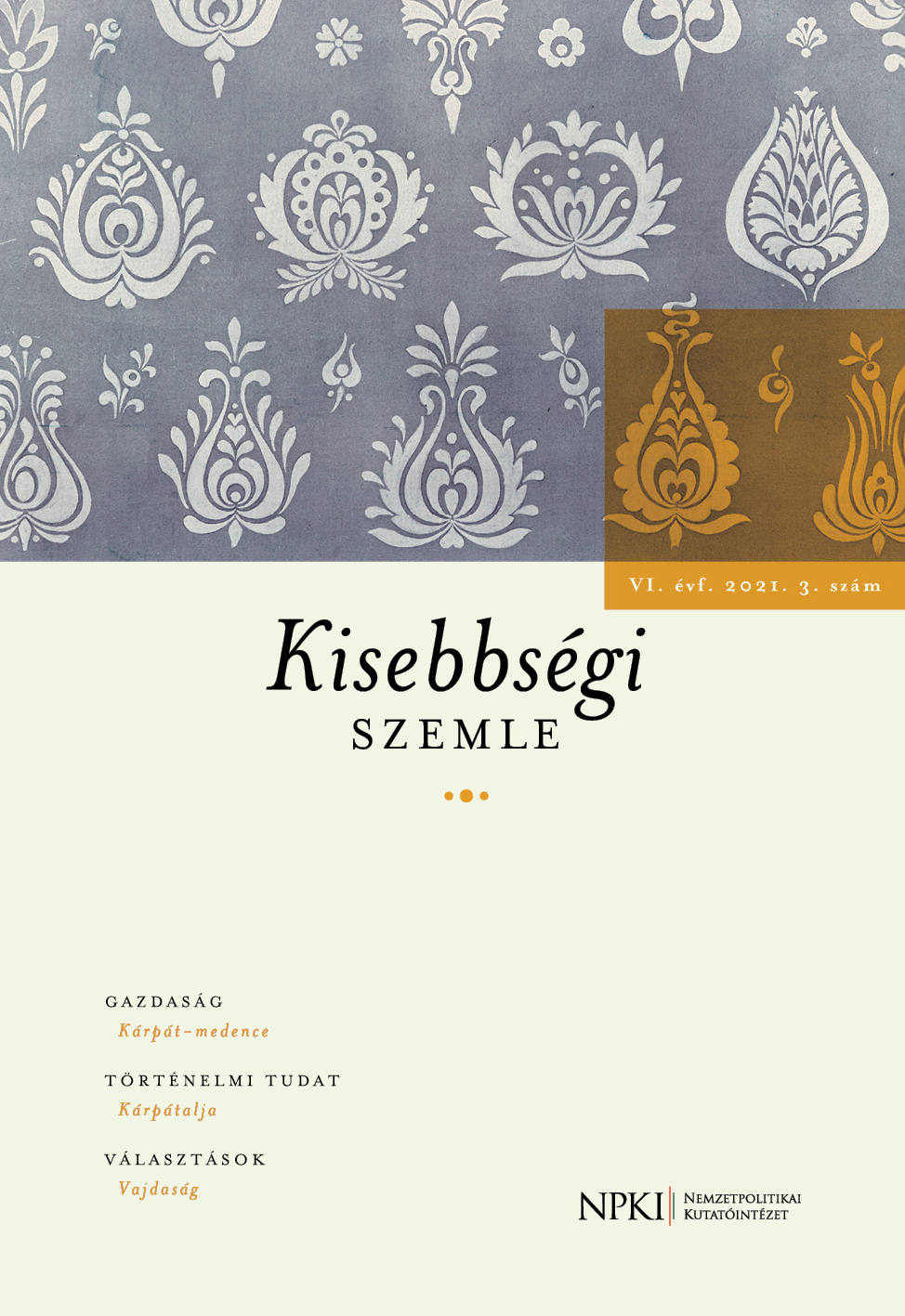A kárpátaljai ukrán és magyar diákok történelmi tudatának konstrukciója a formális és nem formális szocializáció tükrében
Construction of Students’ Historical Consciousness in the Mirror of Formal and Non-Formal Socialization
Author(s): Bernadett SzalaiSubject(s): Politics / Political Sciences, Politics, History, Social Sciences, Sociology, Inter-Ethnic Relations, Ethnic Minorities Studies, Politics and Identity, Identity of Collectives
Published by: Nemzetpolitikai Kutatóintézet
Keywords: students;Transcarpathia;history;minority;hungarian;
Summary/Abstract: Until the end of the 1990s, studies on the effects of history education claimed that history textbooks have the ability to influence students’ historical consciousness without taking into consideration other socializing factors that can modify the historical consciousness of certain agents. Studies focusing on textbooks of post-communist countries assumed that with the distortion of historical events (i.e., omitting accurate data and viewpoints), institutes of education policy can determine students’ historical thinking and consciousness. Some textbooks with revised studies grounded misleading information on the assumption that students’ historical consciousness is constructed by the national “elite” through the process of education. From the 2000s, Central and Eastern European sociological studies have denied this assumption and have directed attention to the role of non-formal sociological factors in forming historical consciousness, identity, and collective memory. The aim of the study is to examine the viewpoints of students studying in Transcarpathian secondary, grammar, and vocational schools on controversial historical issues and to determine which socialization factors influence the agents’ historical consciousness and political thinking in an ethnically mixed area. The hypothesis of the study is that non-formal socializing agents (e.g., family and community) influence students’ historical consciousness living in the mixed ethnic Transcarpathian area. The research was carried out utilizing questionnaires, which along with surveying students’ historical thinking, focused on the impact of formal and non-formal agents on students’ historical consciousness. The questionnaire was filled in the regions of Borehove, Mukachevo, Vinohradovo, Uzhhorod by 231 (109 Ukrainian and 122 Hungarian) students. The objectives of the Ukrainian education policy, the sensitivity of the topic, and the negative direction of the Ukrainian–Hungarian relationship set limits to the involvement of Ukrainian respondents. Thus, based on the results of the research, it can concluded that Ukraine’s current conflicting foreign relations, patriotic education, upbringing climate, and closed atmosphere of educational institutions simultaneously influence the formation of students’ historical consciousness.
Journal: Kisebbségi Szemle
- Issue Year: 6/2021
- Issue No: 3
- Page Range: 31-69
- Page Count: 39
- Language: Hungarian

